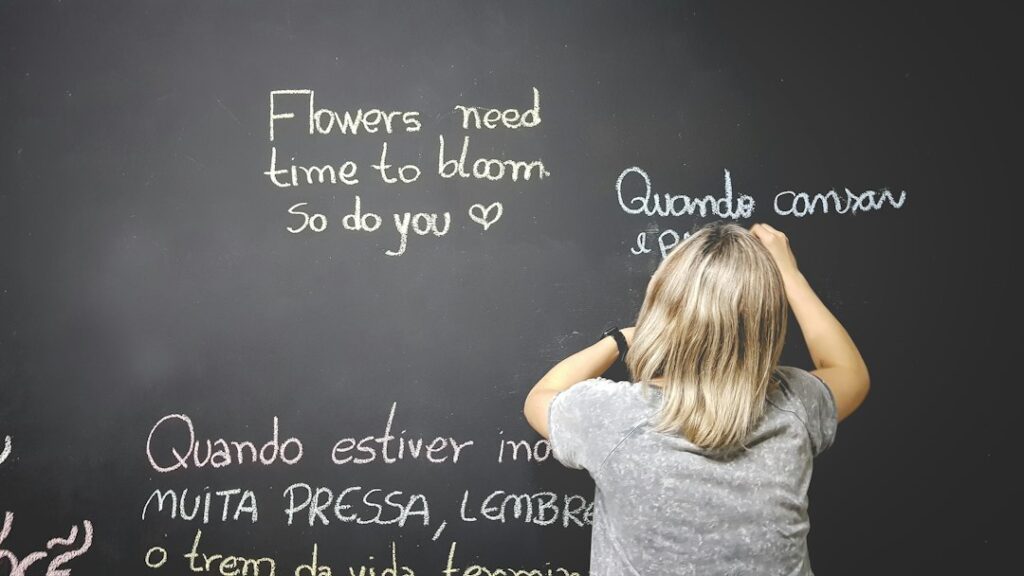Learning Spanish and the Verb Gustar
Learning Spanish
Learning Spanish. If there’s one verb that gave me a lot of trouble when I first started learning Spanish grammar that verb was “gustar.”
Many of the Spanish lessons and Spanish classes that I took in order to learn Spanish only confused me even more about the use of “gustar.” “Gustar” means “to be pleasing to” or “to find pleasant.” But in many instances, Spanish speakers use it the same way that we use the verb “to like.”
If there’s one verb that gave me a lot of trouble when I first started learning Spanish grammar that verb was “gustar.” Many of the Spanish lessons and Spanish classes that I took in order to learn Spanish only confused me even more about the use of “gustar.” “Gustar” means “to be pleasing to” or “to find pleasant.” But in many instances, Spanish speakers use it the same way that we use the verb “to like.”
For example, in Spanish you don’t literally say: “I like the dog.”
In Spanish you would say:
“Me gusta el perro”.
That literally means “the dog is pleasing to me.”
Actually, it means “it pleases me the dog.”
It may sound strange to your English-hearing ears. But you will get
used to it. Let’s try it.
I like the house.
Me gusta la casa.
I don’t like the car.
No me gusta el carro.
You like the table.
Te gusta la mesa.
He likes the screen/monitor.
Le gusta la pantalla.
We like the bridge.
Nos gusta el puente.
They like to lie.
Les gusta mentir.
If you want to say “I like the dogs,” a couple of changes have
to take place. Can you guess what those changes are?
Of course dog (“perro”) must now become plural (“perros”).
But the article (“el”) must also become plural (“los”).
And the verb must change from third person singular (“gusta”) to
third person plural (“gustan”).
Let’s try it:
I like the dogs.
Me gustan los perros.
You like the lakes
Te gustan los lagos.
She likes the streams
Le gustan los arroyos.
We like the rivers.
Nos gustan los ríos.
They like the waterfalls.
Les gustan las cataratas.
The following is the manner that we add clarity or emphasis, or mention the name of the person
or persons that the object is pleasing to.
A Carlos le gusta nadar.
Carlos likes to swim.
A mí me gusta la playa.
I like the beach.
A ti te gusta la orilla del mar.
You like the seashore.
The boys like the forest.
A los chicos les gusta el bosque.
They like the pool.
A ellos les gusta la piscina.
cuba language 24x7offshoring Spanish is the main language in Cuba. Although it is not a local language, the island’s different ethnic groups have influenced the speech patterns. https://24x7offshoring.com/cuba-language/
There are quite a few verbs in Spanish that follow the same construction as the verb “gustar.”
Here are just a few.
Importar (to be important to)
Interesar (to be interesting to)
Faltar (to be lacking to)
Molestar (to bother or to annoy – note that this word does not mean to “molest”)
Encantar (to like)
I have also been confused about when to use “gustar.” Despite what the textbooks say,
you can use “gustar” to indicate that you like someone as in “being physically attractive to someone.”
For example,
Tú me gustas.
I like you.
Me gusta Carmen.
I like Carmen.
But if you want to say that you like someone as in “I get along well with (name),”
there’s a different way to say it.
Me cae bien Carmen.
I like Carmen or I get along well with Carmen. Literally, it means “Carmen falls well on me.”
No me cae bien María.
I don’t like María or I don’t get along well with María.
No me caes bien tú, Or, Tú no me caes bien.
I don’t get along well with you.
Let’s do a few exercises with “gustar.” Translate the following sentences adding emphasis on the person or persons that the object is pleasing to. The answers appear below.
1. I like the cats.
2. You like the wedding. (Add emphasis to “you” using the familiar form of “you.”)
3. Joseph likes the building.
4. We like the shirts.
5. All of you like the insects. (Add emphasis to “all of you”)
Answers:
1. A mí me gustan los gatos.
2. A ti te gusta la boda.
3. A José le gusta el edificio.
4. A nosotros nos gustan las camisas.
5. A ustedes les gustan los insectos.



